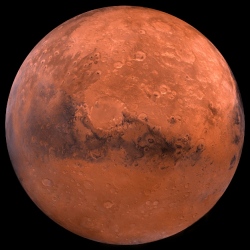
The search for living microbes in the permafrost of Antarctica’s University Valley, a region that has been persistently cold and dry for more than 150,000 years, has thus far proven unsuccessful, and that could spell bad news for the search for life on Mars, according to a new study.
Jackie Goordial, a post-doctoral fellow in the McGill University Department of Natural Resource Sciences, analyzed more than 1,000 petri dishes worth of samples collected over a four-year span at University Valley, which is located in the high elevation of the McMurdo Dry Valleys.
Those samples were then run through a battery of tests both in the field and at laboratories back at the Quebec-based university. No evidence of carbon dioxide or methane, a gas used by every kind of living creature on Earth, were found in the soil. DNA testing found no matches to genes found in microbes or fungi, and other examinations similarly found no signs of active life.
“We couldn’t detect any microbial activity within these samples. Any, very limited traces we were able to find of microbial life in these samples are most likely the remnants of microbes that are dormant or are slowly dying off,” said Whyte. “Given the continuous dryness and subfreezing temperatures, and the lack of available water, even in summer, it is unlikely that any microbial communities can grow in these soils.”
“If conditions are too cold and dry to support active microbial life on an analogous climate on Earth, then the colder dryer conditions in the near surface permafrost on Mars are unlikely to contain life,” he added. “Additionally, if we cannot detect activity on Earth, in an environment which is teeming with microorganisms, it will be extremely unlikely and difficult to detect such activity on Mars.’
